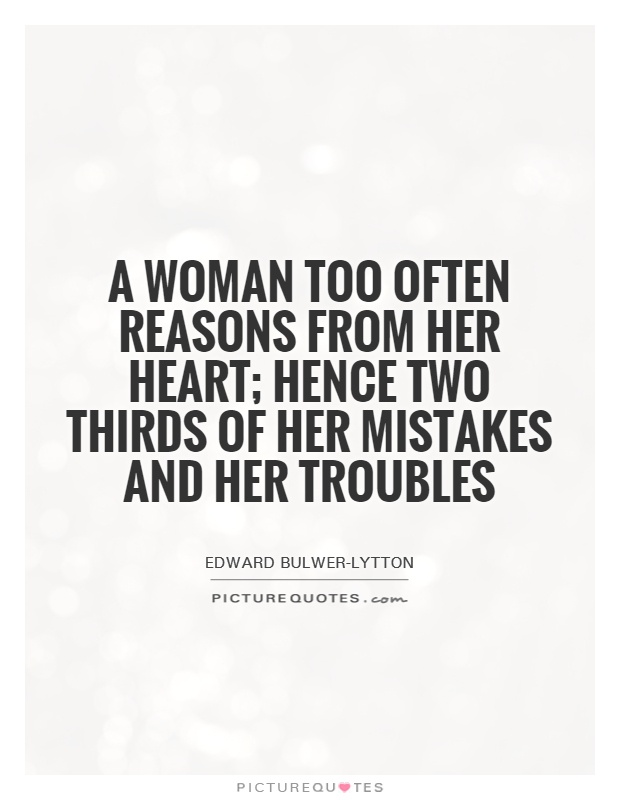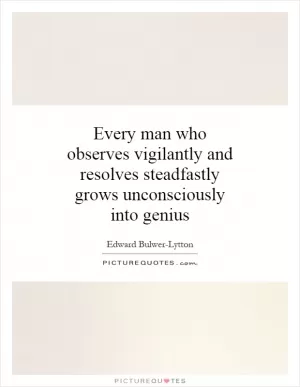A woman too often reasons from her heart; hence two thirds of her mistakes and her troubles

A woman too often reasons from her heart; hence two thirds of her mistakes and her troubles
Edward Bulwer-Lytton, a prominent English novelist and politician, once famously said, “A woman too often reasons from her heart; hence two thirds of her mistakes and her troubles.” This statement, though controversial and perhaps outdated in today’s society, sheds light on the historical perception of women as emotional beings who are prone to making irrational decisions based on their feelings rather than logic.During Bulwer-Lytton’s time in the 19th century, women were often seen as the weaker sex, incapable of making sound judgments due to their emotional nature. This belief was deeply ingrained in society, with women being expected to prioritize their emotions over reason in all aspects of their lives. As a result, women were often criticized for their supposed lack of rationality and were held responsible for the consequences of their emotional decisions.
In the context of Bulwer-Lytton’s statement, it is important to consider the societal norms and expectations that shaped women’s behavior during his time. Women were expected to be nurturing, caring, and submissive, qualities that were often associated with emotional reasoning rather than logical thinking. As a result, women were often judged harshly for their perceived emotional weaknesses and were held accountable for any mistakes or troubles that arose from their decisions.
However, it is crucial to recognize that Bulwer-Lytton’s statement reflects the patriarchal attitudes of his time and does not accurately represent the capabilities of women as rational beings. Women are just as capable of making sound judgments and logical decisions as men, and their emotional intelligence should not be seen as a hindrance but rather as a valuable asset in navigating complex situations.
In today’s society, the perception of women as emotional beings who reason from the heart has evolved significantly. Women are now recognized for their intelligence, strength, and resilience, and are no longer confined to traditional gender roles that limit their potential. While emotions certainly play a role in decision-making, women are fully capable of balancing their emotions with logic to make informed choices that benefit themselves and those around them.












 Friendship Quotes
Friendship Quotes Love Quotes
Love Quotes Life Quotes
Life Quotes Funny Quotes
Funny Quotes Motivational Quotes
Motivational Quotes Inspirational Quotes
Inspirational Quotes